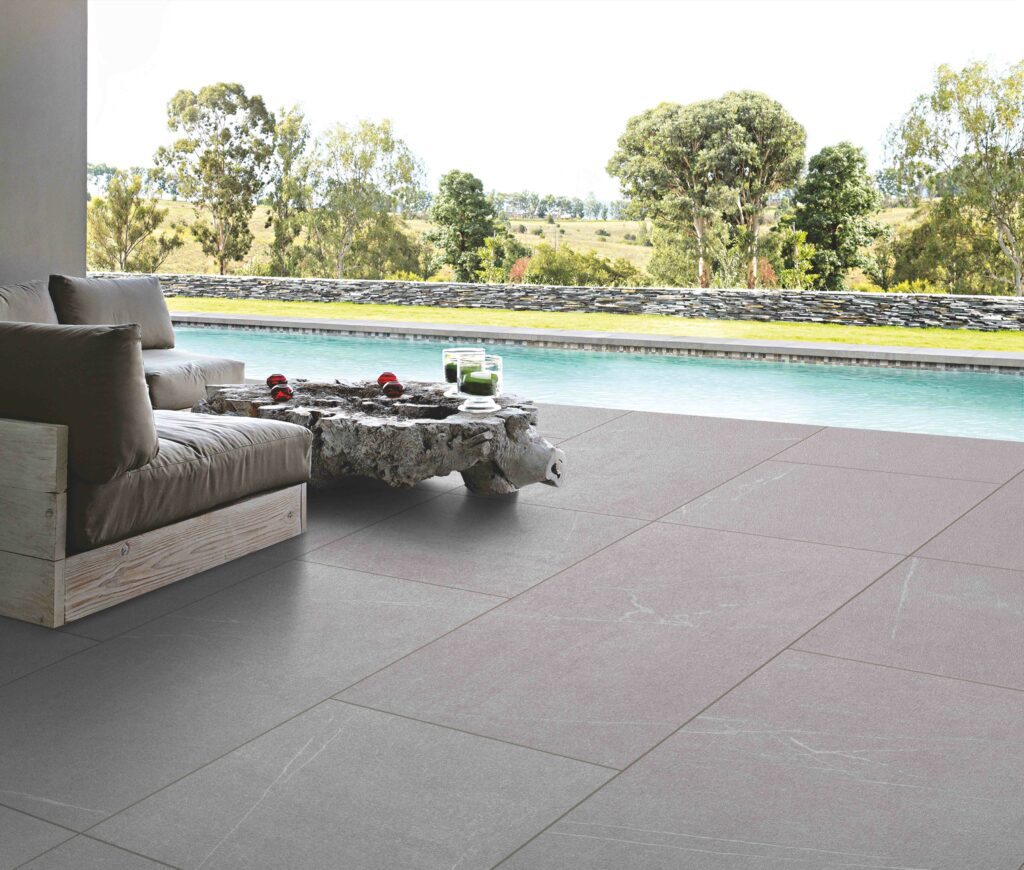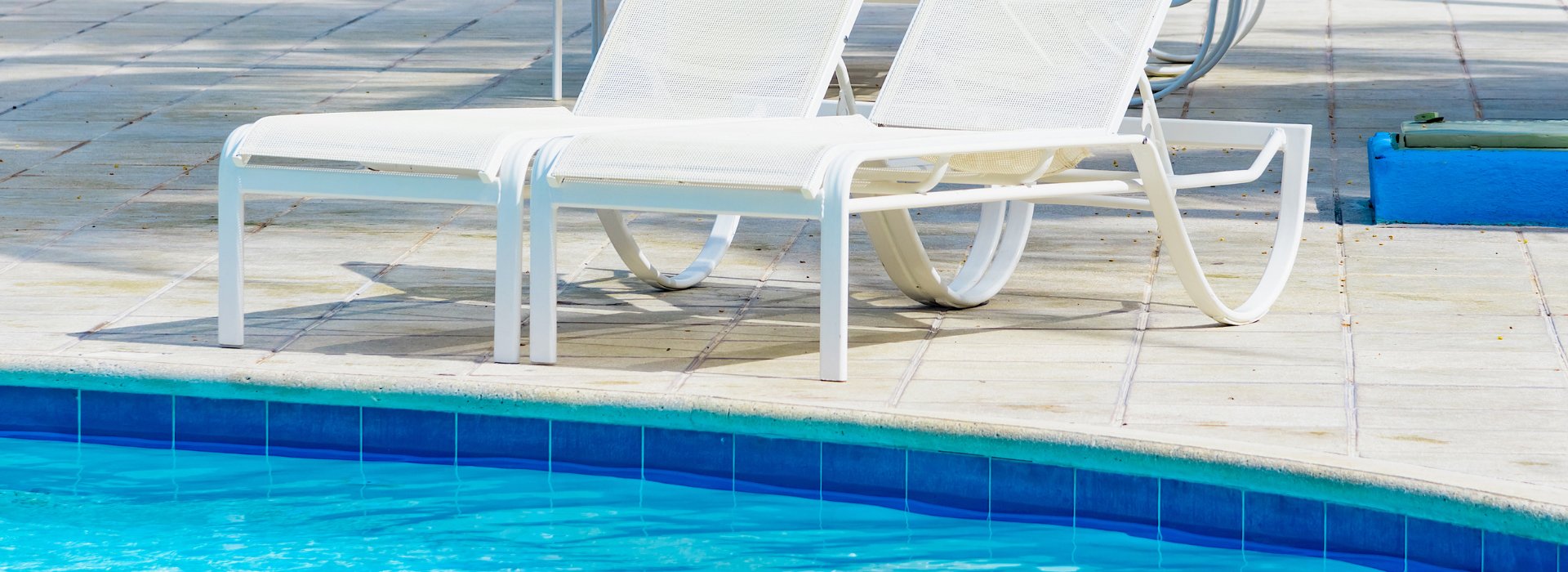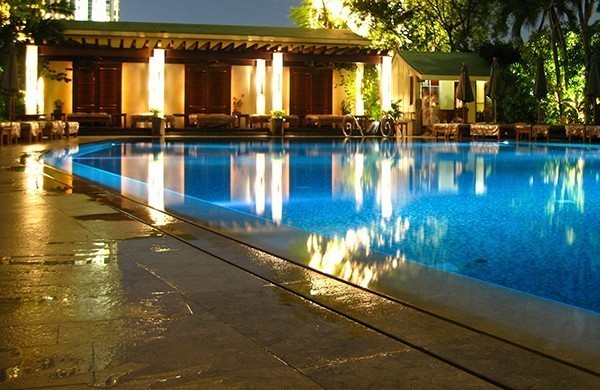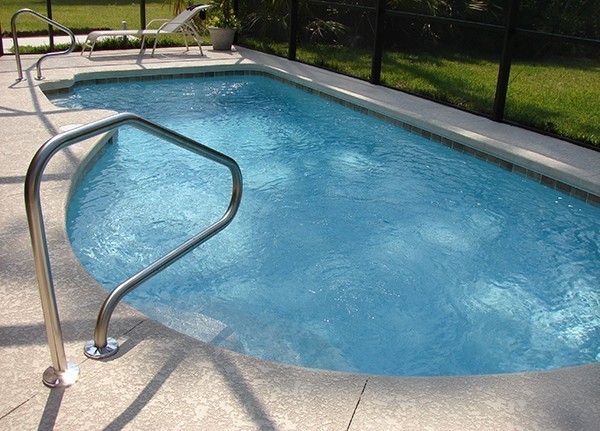Avoiding slips, trips and falls are an important part of pool safety – and when a non-slip surface becomes slippery, it’s rarely the fault of the tile.
Indoor and outdoor factors that impact pool safety
Swimming pool decks and changing areas are full of contaminants, so an efficient cleaning regime is essential in maintaining surfaces clean and safe. In indoors spaces, grease, cosmetics and sunscreen can leave a film on floors and counters, while outdoor patio areas can also be affected by environmental contaminants including rain containing microscopic algae spores, bird droppings and food spills.
Pool safety: removing organic stains
During pool deck cleaning, most people don’t wash down surfaces thoroughly, so the cleaned surface stays partially covered with contaminants. But let’s take one thing at a time… Using the correct cleaner in the first place is critical, as many aren’t effective at breaking down organic matter and can also leave difficult-to-remove residue on the tile surface, creating a cycle of ineffective cleaning and residue.
So what’s the answer to this recurring problem? Firstly, use a good, biodegradable alkaline deep cleaner like PS87, which will break down organic stains like grease, oil, food, droppings and urine without contaminating the pool water – and don’t forget to rinse surfaces thoroughly with clean water. PS87 is highly concentrated and can be diluted according to the use and type of surface being cleaned. Let’s look at a few examples:
- Use a dilution of 1:10 (1QT of product in 2.5 GAL of water) to regularly clean porcelain tile. Scrub vigorously with an abrasive pad and rinse thoroughly.
- For heavy dirt buildup on porcelain tile, dilute 1:5 (1QT in 5QT of water). Scrub vigorously with an abrasive pad and rinse thoroughly.
- To remove stubborn stains on porcelain tile, use PS87 undiluted directly on the stain. Allow it to completely dry (20-60 minutes), then scrub vigorously with an abrasive pad and rinse thoroughly.
- To clean unpolished natural stone, dilute 1:10. Scrub vigorously with an abrasive pad and rinse thoroughly.
- To clean polished natural stone, dilute 1:20 (1/2 QT in 2.5 GAL). Scrub vigorously with a white abrasive pad and rinse thoroughly.
Click here for more information about PS87.
Watch how to apply PS87 here and here!
Pool safety: removing inorganic stains from porcelain and ceramic tile, acid resistant natural stone, quarry tile and terracotta
Alkaline cleaners are ideal for the removal of organic dirt, but if you’re faced with limescale build up, you’ll need an acid-based treatment to remove it. Make sure that you choose a buffered acid cleaner like DETERDEK. Let’s look at two reasons why DETERDEK is so effective.
Firstly, DETERDEK won’t emit harmful fumes that are dangerous for the user and the environment. Fumes produced by non-buffered acid cleaners can also cause the erosion of air conditioning ducts over time – a very expensive mistake!
Secondly, non-buffered hydrochloric acid can erode aluminum and steel, particularly problematic if it comes into contact with swimming pool steps, shower fixtures, patio furniture and other metal objects.
DETERDEK should be diluted 1:5 – 1:10 to clean porcelain and ceramic tile, acid resistant stone, quarry tile and terracotta. Apply the solution to sections of a few square feet at a time. Let sit a few minutes, then rub vigorously with an abrasive pad or large brush. Remove the residue with a cloth or wet vac and rinse with plenty of water.
Caution: Do not use DETERDEK in acid sensitive stone such as marble, limestone and travertine. Test the product on a small inconspicuous area of the surface or loose sample before full application.
Click here for more information about DETERDEK.
Watch how to apply DETERDEK here and here!

Pool safety: removing inorganic stains from acid sensitive natural stone
Acid sensitive natural stone cannot be treated with acids, as they will create surface dulling called etching. That’s why acid sensitive surfaces like marble, limestone and travertine should be cleaned with a specifically-formulated cleaner. FILA’s STONECLEAN is designed to gently clean all natural stone wall and floor coverings, and does not damage delicate surfaces.
To remove stubborn dirt, dilute STONECLEAN 1:30 (1/2 cup per gallon if water), scrub and rinse.
For everyday maintenance, dilute STONECLEAN 1:200 (one capful per gallon of water), for a no-rinse application.
Click here for more information about STONECLEAN.
Watch how to apply STONECLEAN here!
Now that you’re all done cleaning, it’s time for a well-earned swim!


